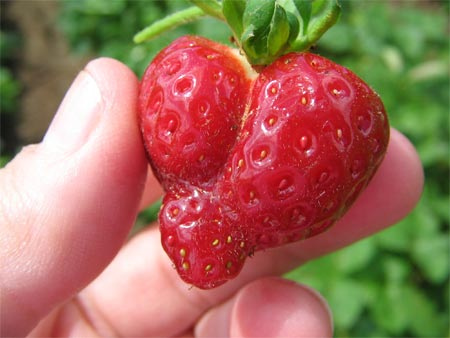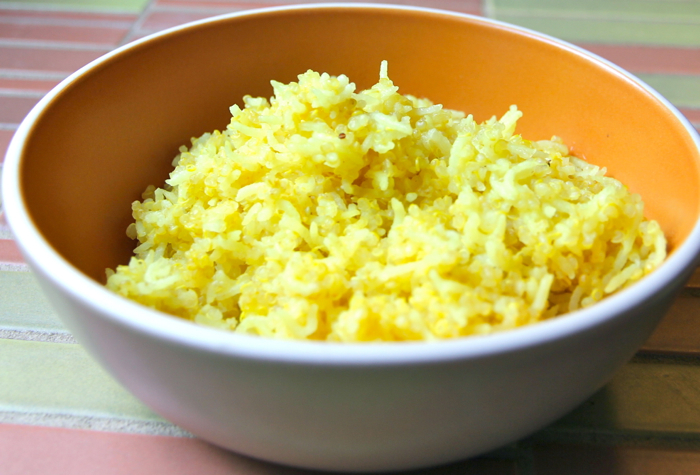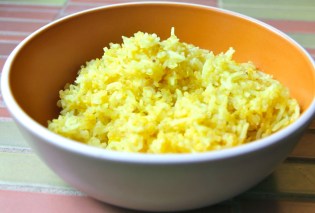I’m a big fan of what I like to call “the third option” in the kitchen. Case in point: You know you should eat brown rice but you don’t always find it very delicious, so you either 1) cook it occasionally and suffer through it, 2) cook white rice solely, and feel vaguely guilty about it. The third option might sound obvious, but I’m surprised by how few people have tried it: Go halfsies.
In addition to being higher in fiber and many vitamins, brown rice is also a much greener option (white rice requires about twice as much land, water, and nutrients to grow since around half the weight of the grain is lost in the processing). I was raised on brown rice (duh! Have you seen my name?), and I probably enjoy it more than most people — but I’ll be honest; I don’t always feel motivated to make it.
So a few years back, I started experimenting with cooking half brown, half white. The technique is straightforward. It’s a great approach when you’re feeding brown rice-haters. And it works for a variety of grains other than rice (my favorite these days is actually the quinoa/rice blend* pictured in the photo above). Here’s a super basic recipe:
Ingredients:
1 cup long grain brown rice (or substitute Bhutanese red rice if you’re feeling fancy)
1 cup basmati or Jasmine white rice
3 cups of water
1 teaspoon of salt
Optional: a slice of fresh ginger for flavor and a half teaspoon of turmeric for color
Preparation
1. Combine the water, salt and brown rice in a non-reactive pot. Bring rice to a boil, lower heat and let simmer on low for 15 minutes (this is where a close relationship between you and your kitchen timer can come in very handy).
2. When timer goes off, add the white rice and set the kitchen timer for 20 more minutes. When it goes off a second time check your rice for tenderness and your water level, and add a quarter cup of water if necessary. If the rice is close to being done to your liking but you can still see a little water near the surface, try turning the heat off, leaving the lid on, and letting the rice steam in residual heat for an extra 10-15 minutes.
3. Serve with your favorite combination of vegetables and/or protein. (I always make at least a serving or two extra since cooked grains can last in the fridge for as long as a week.)
* This blend is especially easy because quinoa requires the same exact cook time that most long grain white rice does.





